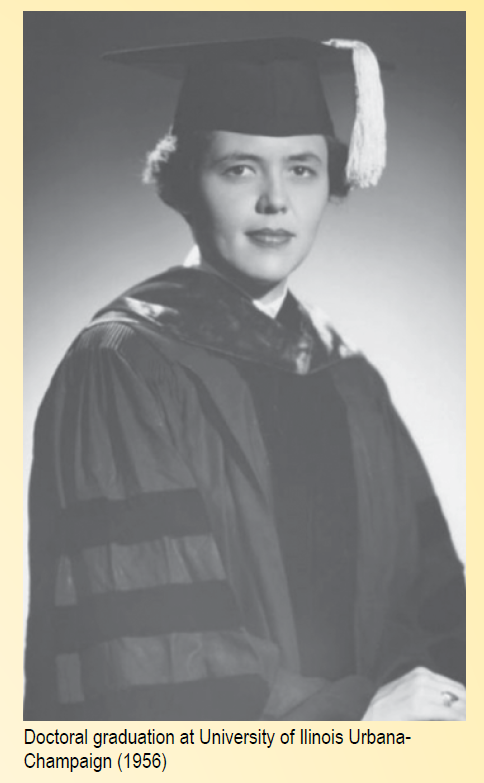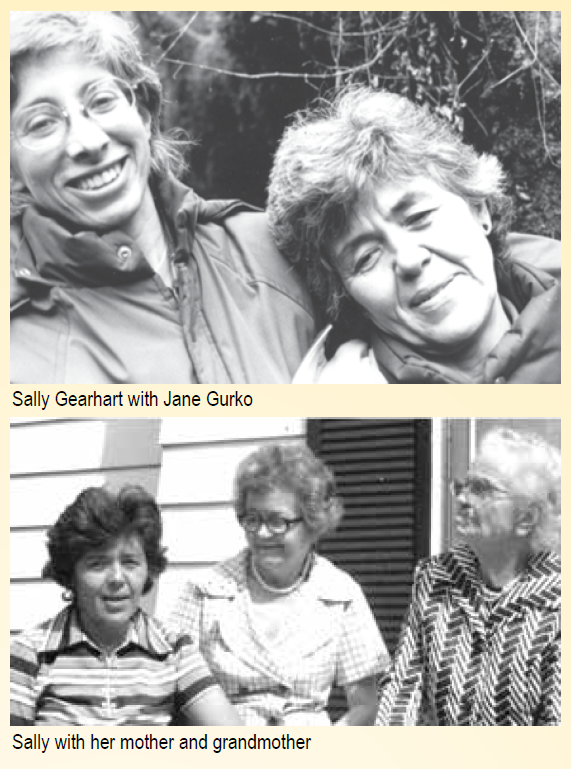Lesbian activist Sally Miller Gearhart, who helped launch the field of Women’s Studies and with Harvey Milk was key to the defeat of anti-gay Proposition 6 that would have banned LGBT teachers from public schools, died on June 14 in Ukiah at the age of 90. One of the most prominent and influential out lesbians in Bay Area history, Gearhart was the first openly lesbian member of the boards of the San Francisco Family Service Agency and the San Francisco Mental Health Association. Through such positions, she fought homophobia and misogyny and advanced civil rights for all.

To understand the importance of her work, particularly concerning Proposition 6 (also called the Briggs Initiative after conservative state legislator John Briggs), consider these words published in the June 20, 1978, issue of the San Francisco Bay Times. They were written by teacher Larry Berner, who had previously outed himself to the teaching community in a newsletter article addressing the initiative.
“Every time the door of my classroom opened, I jumped, thinking it might be the principal coming to replace me. About a week after the article appeared, three children were withdrawn from the school because of my presence.”
If it were not for brave activists such as Gearhart and Milk, LGBT teachers might not have been able to work in California, much less in other states, with far-reaching consequences to other basic rights for LGBT individuals. Tall, charismatic, and a skilled debater, Gearhart shut down many Briggs supporters and rallied allies at the many events in which she spoke. The initiative was defeated by a victory of 58.4% versus 41.6%.
Born in the small Appalachian town of Pearisburg, Virginia, Gearhart was affected by her parents’ divorce and was sent to her maternal grandmother’s boarding house. There she experienced female camaraderie and developed an admiration for “the collective strength of women.”

She attended the all-women’s Sweet Briar College in her home state before pursuing master’s studies at Bowling Green State University and then the University of Illinois at Urbana-Champaign for a doctoral degree in theater (1956). For many years she was a popular and successful teacher of speech and theater, yet was blackmailed and experienced other threats due to her sexuality.
She moved to Kansas in 1969 in order to be with a lover (the term “lover” was commonly used at the time to describe same-sex partners). In 1970 she moved to San Francisco to live and work openly as a lesbian. A year later she convened the first women’s-focused course at Berkeley’s Graduate Theological Union. It led to an article that, according to the book Lesbians Who Changed America 1963–1975 by Barbara J. Love “was one of the earliest lesbian challenges to established religion.” In the book Love adds that in 1973, “she became the country’s first open lesbian to be awarded a tenure-track position (by San Francisco State University). She was one of the architects of that university’s radical Women’s Studies Program.”
Her 1978 utopian novel The Wanderground: Stories of the Hill Women “became an underground feminist classic,” according to Love. Gearhart went on to write other books with women-centered themes. She was also an environmental activist who traveled to countries such as Nicaragua to help with reforestation efforts.
After years of teaching she earned professor emerita status at SF State and moved to Northern California to loosely found “Women’s Land” in Willits to be in nature and to be with other lesbians “outside of patriarchal confines,” according to Gearhart’s obituary in The New York Times. She often traveled back to the Bay Area, however, to visit and support friends.
The San Francisco Bay Times publishers frequently saw her at music producer Barbara Price’s now-closed Montclair Women’s Cultural Arts Club in the Montclair Village community of Oakland. It was an extraordinary and beautiful place, made even more so by Gearhart’s presence. Just striding in she could light up a room, with people drawn to her presence even before she spoke. Her passion for LGBTQ issues, women’s rights, politics, the arts, and much more were evident, not to mention her sharp sense of humor.
In terms of her legacy in academia, aside from the evolution of Women’s Studies as a field, The Sally Miller Gearhart Fund for lesbian studies was established by Carla Blumberg, one of Gearhart’s former students, in January 2008 at the University of Oregon. It was created to promote research and teaching in lesbian studies through an annual lecture series and an endowed professorship at the university.
The Sally Miller Gearhart Papers (1956–1999) are held at the Special Collections and University Archives, University of Oregon Libraries.
http://archiveswest.orbiscascade.org/ark:/80444/xv81757
Published on July 29, 2021
Recent Comments